Phonics skills development Alphabet Worksheets for Ages 3-6
5 filtered results
-
From - To
Enhance your child's phonics skills with our engaging Alphabet Worksheets specifically designed for ages 3-6! These interactive resources offer an enjoyable way for young learners to master letter recognition, sounds, and word building. Each worksheet is crafted to reinforce phonetic awareness through playful activities, making learning both fun and effective. Parents and educators can effortlessly incorporate these worksheets into at-home learning or classroom settings. Boost your child's confidence and literacy foundation as they discover the exciting world of letters and sounds. Explore our phonics skills development worksheets today and watch your little one thrive in their early reading journey!
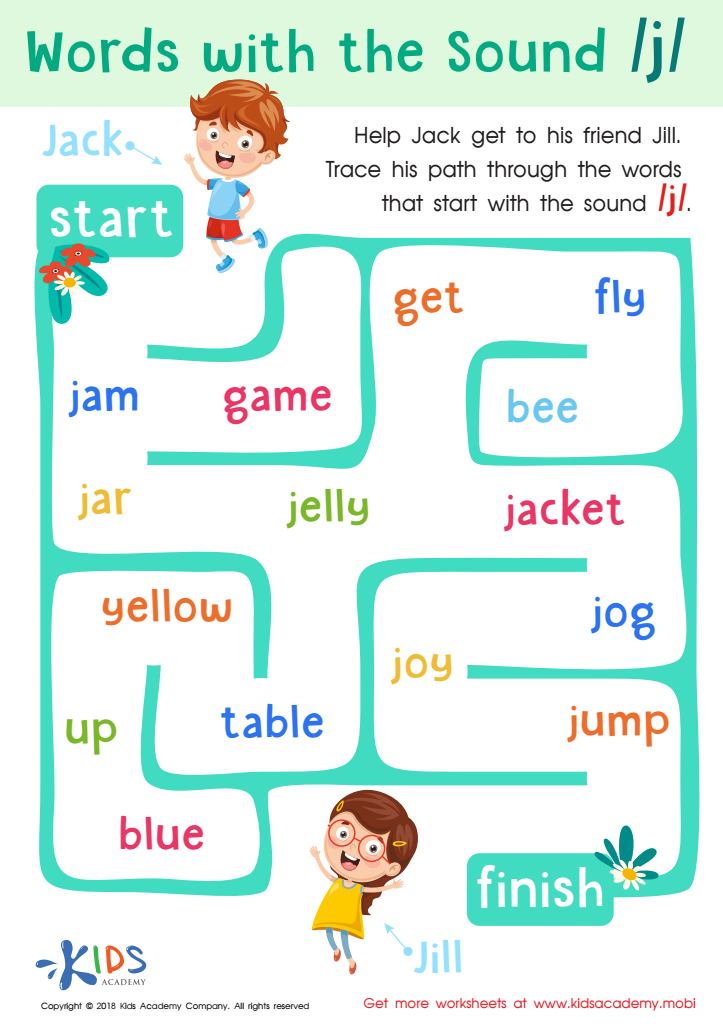

Words with sound j Reading Worksheet
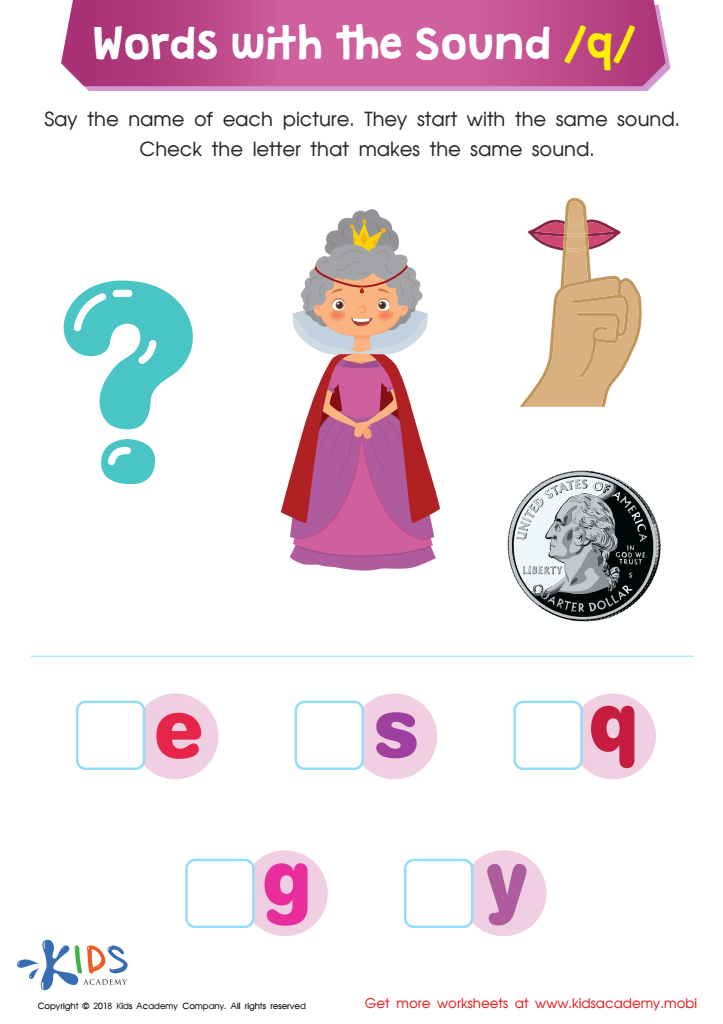

Words with Sound Q Reading Worksheet
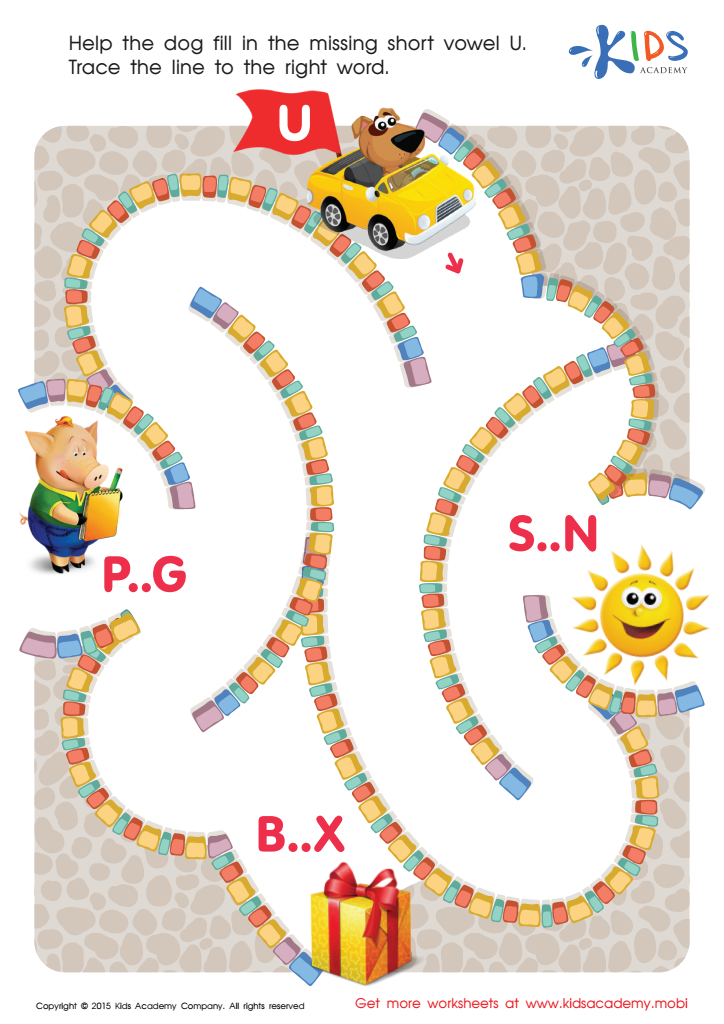

Short Vowel Sound U Worksheet
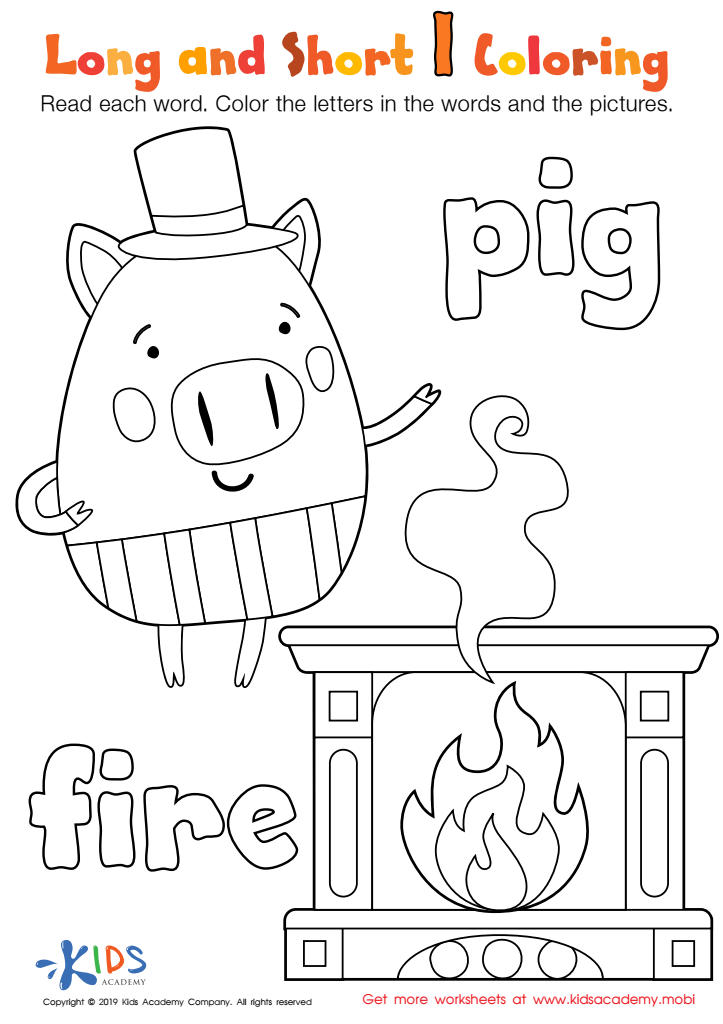

Long and Short I Worksheet
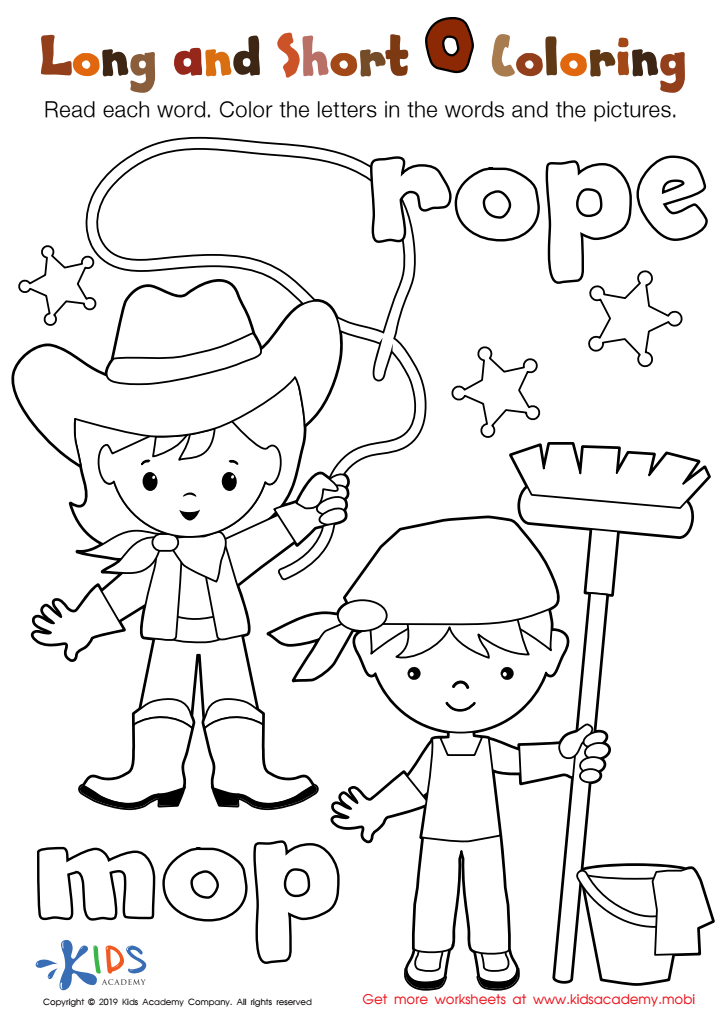

Long and Short O Worksheet
Phonics skills development is crucial for children aged 3 to 6 because it lays the foundation for reading and writing proficiency. During these formative years, children are rapidly acquiring language skills and their ability to understand the relationship between letters and sounds is essential for their literacy journey. By mastering phonics, children learn how to decode words, improving their reading fluency and comprehension.
Parents and teachers should care about phonics because it enhances a child's confidence and enthusiasm for learning. A solid grasp of phonics provides children with the tools they need to tackle new words independently, making reading a more enjoyable experience. Moreover, early phonics instruction can help identify and address potential learning difficulties before they become more significant challenges.
Research has shown that children who receive explicit phonics instruction not only become better readers but also develop better writing skills. As they gain competence, their overall vocabulary and language use expand, paving the way for academic success. Thus, emphasizing phonics development in early education supports a lifelong love for literacy, equipping children with essential skills they will use throughout their academic careers and beyond.
 Assign to My Students
Assign to My Students













